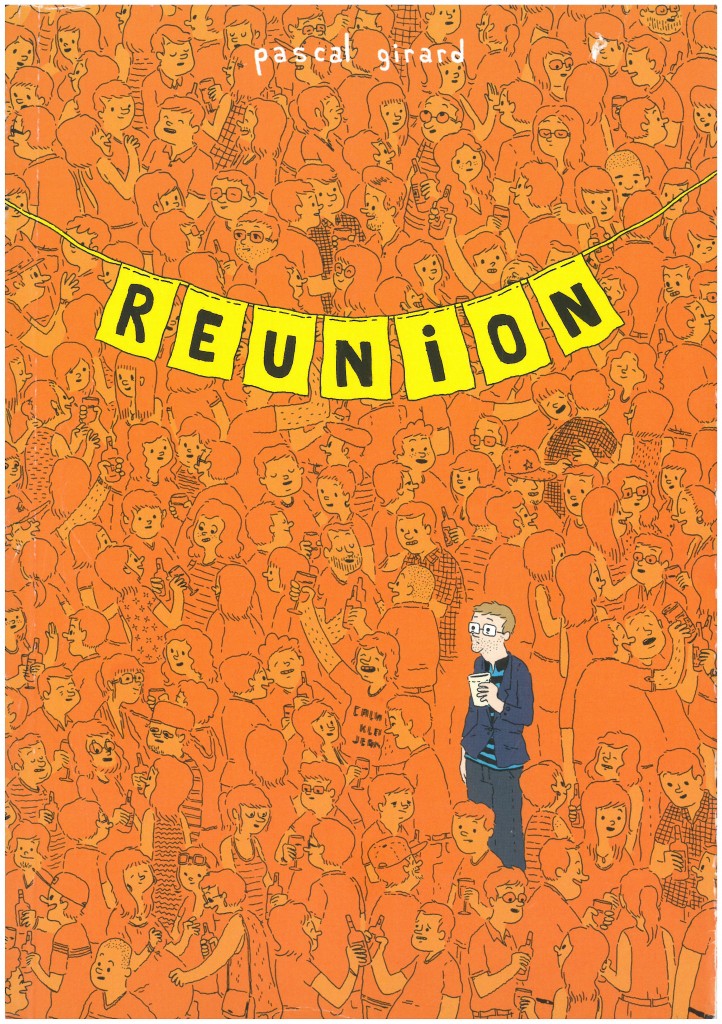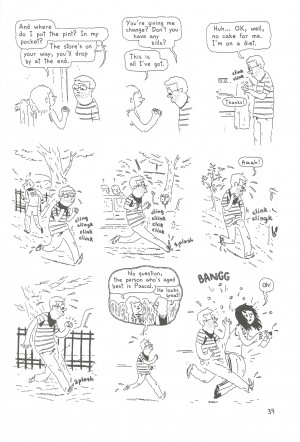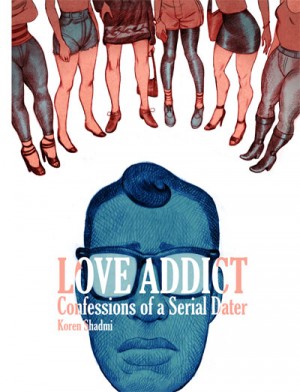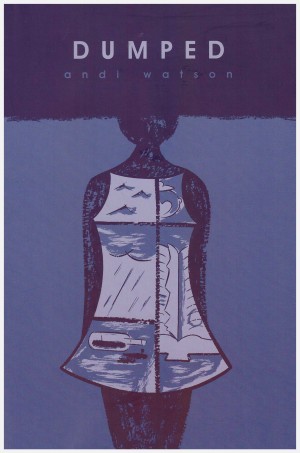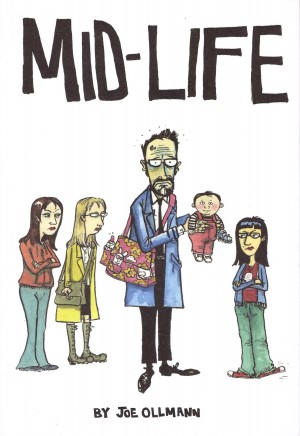Review by Bill Stone
Reunion is a semi-autobiographical novel by Canadian Pascal Girard about the dreaded school reunion. He’d later write the highly lauded Nicolas about the loss of his five year old younger brother, which was marked by sensitivity and insight as well as an understated evocation of the grief and confusion felt by the author. For Reunion, Girard appears to have decided that brevity and subtlety are over-rated qualities, and what ensures the point hits home is the application of a 14lb industrial sledgehammer to a particularly inoffensive nut.
Pascal receives an invite to his school reunion, ten years and 50 pounds or so after leaving. He is initially uncertain whether or not to go, but when contacted by Lucie, his unrequited high school love, he determines to take urgent and definitive action to lose weight. His decision to go jogging every day is ultimately successful and he loses over three and a half stone but never manages to become the ‘winner’ he dreams of being.
This neatly highlights one of Reunion‘s flaws. The character appears unable to escape the limitations of his teenage way of thinking and seems to have learned little or nothing in the intervening years. Pascal still categorises people as either winners or losers and treats them accordingly. He has few, if any, redeeming features, yet somehow has a relationship with a long-suffering, sweet-natured girlfriend. Naturally he keeps her in the dark about his reignited lust for Lucie. Pascal, on the way to the reunion, during the event itself and afterwards, encounters a continuing series of humiliations and mishaps which evince precisely no sympathy whatsoever.
Girard’s monochrome line art is both precise yet jittery and neatly captures the character’s anxiety about attending the event. The sketch-like quality is reinforced by the images appearing unseparated on the page, as if lifted directly from Girard’s rough workings. The story is skilfully paced and arranged and succeeds in presenting the journey the character is on, but the unlikeable nature of Pascal is once-again highlighted as the end of the book shows him running away and hiding from an old school-mate that really wants to befriend him.
It is a depressing and disheartening read, and leaves one praying fervently that Girard has amped up the unlikeability of Pascal to eleven for narrative purposes, otherwise the author is an individual to avoid at all costs. Still, at least you’ll learn what ‘prognathic’ means. It’s a shame the character doesn’t stick out for better reasons.
